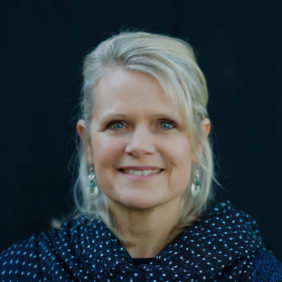You may be familiar with the old saying, “Only two things are certain—death and taxes.” But leaders can update that shortlist with one more certainty—change.
Not all changes are created equal. Some are admittedly much more difficult and unwelcome than others—such as divorce or the death of a loved one. The common denominator for all change, however, is that all human beings tend to process change in much the same way we experience loss. Given that, it makes a lot of sense that we would benefit from some social support as we attempt to navigate change.
Instinctively, we often turn to our friends and work colleagues seeking their support during change. The problem with that is they may or may not have either the 1) capacity and/or 2) skillset to effectively support us—particularly when they are also being impacted by the same change we are looking for help with.
For all of these reasons, engaging a coach to help you navigate change may be a better option. All professional coaches earn their living helping people change, whether they specialize in leadership, life coaching, wellness, or sports. Most coaches are focused primarily on helping individuals change, but some also are very skilled in helping groups or teams navigate change and occasionally, some coaches will even help to architect and enable organizational systems to change.
We are living through a time in history when the breadth, depth, and velocity of change on many different fronts generally exceeds what humans have evolved to handle well. Even with support from a change expert, it’s not easy to lead or navigate change during VUCA times.
The most effective coaches are adept at helping you leverage three different elements – mindsets, skill sets, and behaviors, which I talk about in my book Learn Lead Lift: How to Think, Act and Inspire Your Way to Greatness—to successfully navigate change. Let’s dive into a few examples.
Mindsets: People First
Mindsets are the mental lenses through which we perceive the world, influencing what we pay attention to and what we ignore. The problem is that most leaders aren’t self-aware when it comes to their own mindsets. Nor do they realize the extent to which their mindsets influence their daily decision-making and behavior.
Most leaders are unaware that they focus much more mental energy on what has to change than who the change will impact and how it should be managed (People First). And, under periods of higher stress and/or time pressure, we are all more likely to rely on mindsets that seem automatic. A coach can help us to recognize and shift our “what-focused” thinking patterns through deliberate reflection and dialogue into a People First mindset.
I once coached a brilliant executive who was very effective as an individual contributor in driving business results for her company. The problem was that she was so focused on what needed to happen and what processes needed to evolve, that she routinely ignored or discounted any impact on her people. And, she was starting to lose valuable team members to burnout as a result.
A huge breakthrough for her happened when she realized through coaching that the way she was approaching change initiatives and results was not the only way to think about them, and her mindset was strongly contributing to the talent drain.
Shifting to a People First mindset wasn’t easy for her, and it wasn’t an overnight process. Coaching was an important enabler because it provided a structured container for her to safely experiment, receive critical feedback, and test new ways of thinking first with her coach so she could refine them before applying them with her team.
Skill Sets: Leading Change
Skill sets are what we know or know how to do—our expertise. Leading Change, an essential skill set for all leaders within the Learn Lead Lift Framework™ is expertise that none of us are born with. We acquire it through a combination of our experience and deliberate practice.
Some people, due to their innate personalities, are really energized by the prospect of change. Most people are not, which makes acquiring the skill set required to lead change well somewhat tricky. Coaching can help us appreciate how we are naturally wired to respond to change and identify what assumptions about change we are carrying around with us (Mindsets). From there, a coach can help you develop a plan to leverage your innate strengths as a change leader and introduce you to models and toolsets to manage change effectively.
Recently, I delivered a half-day workshop on Leading Change to a cross-functional team of scientists and program managers. They were charged with the task of leading a large-scale, multi-year, high-stakes change initiative in their organization. For the first 20 minutes of the workshop, It was clear the participants thought the session would be a waste of their time because they assumed they already knew everything they needed to know about managing change.
They were visibly surprised to discover that in fact, our session provided an opportunity for them to acquire new insights and practical expertise around leading change that they had not been able to generate for themselves. At the conclusion of our session, there was general agreement that Leading Change was, in fact, a discrete skill set they had not yet already mastered.
Behaviors: Humility
Behaviors are how we “show up” to others. They are the visible outcomes of our mindsets and skill sets operating together. Humility is often overlooked as an enabler for change, even though I would argue it is one of the most important differentiators for great leadership in that context. It’s also an area where coaching can make a powerful difference.
In every change process, there inevitably comes a moment when we are anticipating and hoping for a certain outcome, without any guarantee it will actually happen. Visualize being led to a stream that you must cross to continue your journey, but the water is so murky you can’t see the bottom. You want to believe what your leader is telling you—that the stream is shallow enough you can easily walk through it and make it to the other side. But until you actually step forward and wade into the water, you won’t know for certain.
Stepping forward and wading into murky waters is an act of faith and trust in leadership. Imagine if you are following a leader who consistently demonstrates humility through their words and actions. Now, imagine you are following a different leader who does not. Which one would you be more likely to follow into the stream?
When people consistently represent themselves to us as perfect, we trust them less. We know that we are imperfect, and knowing our leader is not perfect either actually engenders our trust. This may seem illogical or paradoxical, but it speaks to the power of humility in leadership, particularly during change.
Coaching can help us to find the balance between expressing confidence and uncertainty or imperfection in our leadership. No one wants to follow a leader who is indecisive or lacks confidence into a murky stream. But if that same leader has been honest in owning their past mistakes, is quick to hold themselves and others accountable for missteps, and is proactive in sharing what they are working to get better at, we are much more likely to follow them now.
If you are interested in learning more about how Learn Lead Lift® Coaching can support you in navigating change, we are here to help. Email hello@wearekadabra.com to connect with one of our team members today.


 Heather Leavitt-Martinez (she/her/hers) – Senior Product Manager
Heather Leavitt-Martinez (she/her/hers) – Senior Product Manager Wendy Ryan (she/her/hers) – CEO
Wendy Ryan (she/her/hers) – CEO Shawn Bunger (she/her/hers) – Senior Consultant
Shawn Bunger (she/her/hers) – Senior Consultant Crystal Whiteaker (she/her/hers) – Senior Consultant
Crystal Whiteaker (she/her/hers) – Senior Consultant Gail Finger (she/her/hers) – Senior Consultant
Gail Finger (she/her/hers) – Senior Consultant Monica Silkwood (she/her/hers) – Director of Operations and Experience
Monica Silkwood (she/her/hers) – Director of Operations and Experience Johanna Lyman (she/her or they/them) Senior Consultant
Johanna Lyman (she/her or they/them) Senior Consultant Sherri Horan (she/her/hers) – Senior Consultant
Sherri Horan (she/her/hers) – Senior Consultant